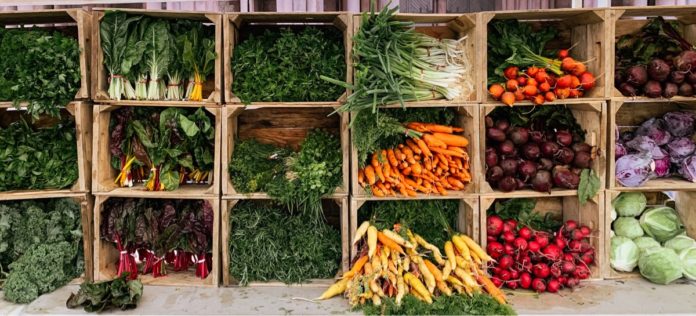The plant-based market has exploded in the last few years. More citizens than ever are turning to plant-based products as alternatives to meat, dairy and other livestock derived foods. The segment is predicted to reach $37.9 billion in market value by 2027 as more people move towards more flexitarian diets, driven health, sustainability and animal welfare concerns. With 8.7 million flexitarians in the UK, with numbers continuing to grow, more companies and brands are investing in and launching new products – and in 2022 I am seeing a particular focus on innovation in plant-based seafoods, chicken, pork, eggs, and chocolate!
It is undeniable that from an environmental perspective (whether tackling climate change or biodiversity loss) the single most important thing a citizen can do is to eat less meat, placing plants at the centre of their plates, followed by reducing food waste. However, not all plant-based foods, particularly those with significant amounts of sugars, saturated fats, and salts (otherwise known as ultra-processed foods (UPFs)) are necessarily beneficial from a health perspective – In fact many could do more harm than good, with a World Health Organisation recently publishing a review entitled ‘Plant-based diets and their impact on health, sustainability and the environment’ concluding that ‘not all plant based diets are healthy’. The increasing availability of UPFS, whether plant or animal has led to worldwide obesity has nearly tripled since 1975. Globally there are now 677.6 million obese adults and 1 in 3 people are now overweight, including 38 million children under the age of five. NCDs are responsible for 41 million of the world’s 57 million total deaths (71%) of which diet is one of the four leading risk factors. Globally, one in every five deaths in adults is associated with unhealthy diet.
I would argue that alongside the focus and attention on increasing the proportion of plants within our diets, relative to animals, we need to give far more consideration to the type and quality of plant-based foods being eaten. We need to avoid the potential unintended health consequences of plant-based foods which contain high levels of sugars, fats, and salts, which are often used to replicate the taste and texture of their meat counterparts. Healthy and sustainable diets are generally considered to contain a diversity of high fibre plant-based nutrient-rich foods, consisting of vegetables, fruits, whole grains, legumes, nuts, and unsaturated oils. According to the World Health Organisation review of plant-based diets ‘individuals should preferably choose minimally processed foods and drinks: whole grains over refined grains; whole fruits over fruit juices; unrefined non-tropical vegetable oils (rich in mono- and polyunsaturated fatty acids) such as olive and sunflower oil over coconut oil and partially hydrogenated oils; and unsweetened beverages such as water, coffee or tea over fizzy drinks and other sugar-sweetened beverages.
For many of you that that read my blogs you will be aware that I am a strong advocate for a ‘less but better’ approach to meat consumption – with the need to reduce global meat consumption by at least 50% by 2040 (recognising that in some countries reductions will need to be higher and others this will be lower). When we do eat meats, these must be ‘better’ from a health, sustainability, and animal welfare perspective, supporting those high welfare agroecological, regenerative, pastoral, and organic livestock farming systems which support the shift from intensive factory farms towards those farming practices and principles that can build soil health, improve biodiversity, reduce global GHGs and improve farmer livelihoods.
Alongside a ‘less but better’ approach to meats we need to take a ‘more but better’ approach to our plant-based foods, focussing on a greater diversity (at the moment 60% of global calories come from 6-8 key globally traded crops!) of fresh fruits, vegetables, wholegrains, nuts and legumes ( including the multitude or orphan and forgotten crops – see blog) using agroecological, regenerative and sustainable agricultural practices. Only by taking a less but better meats and more but better plants approach can we hope to improve the health of people, planet, and animals.
Written by Mark Driscoll, first published on his blog Tasting the Future



